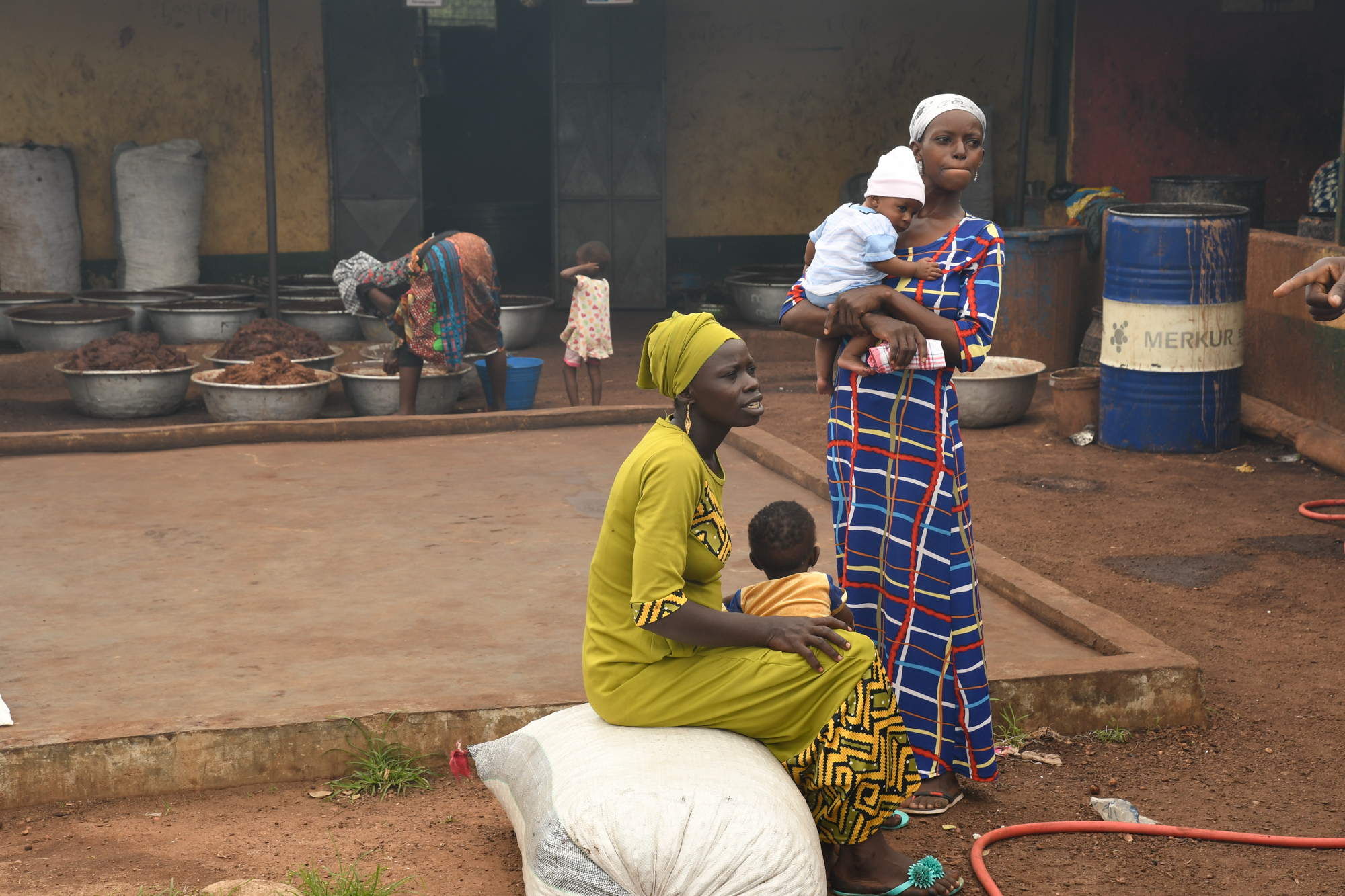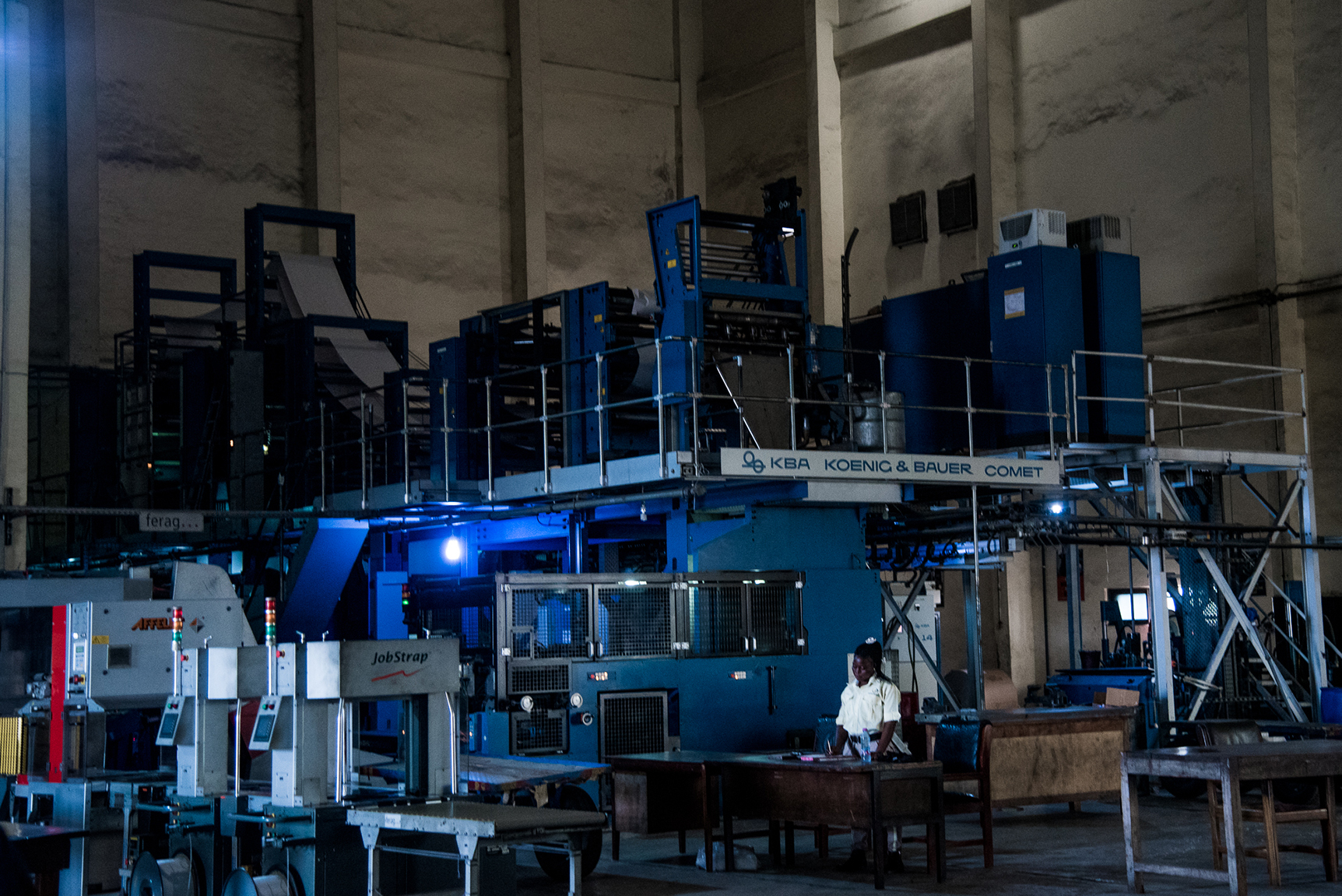by Andrew Califf
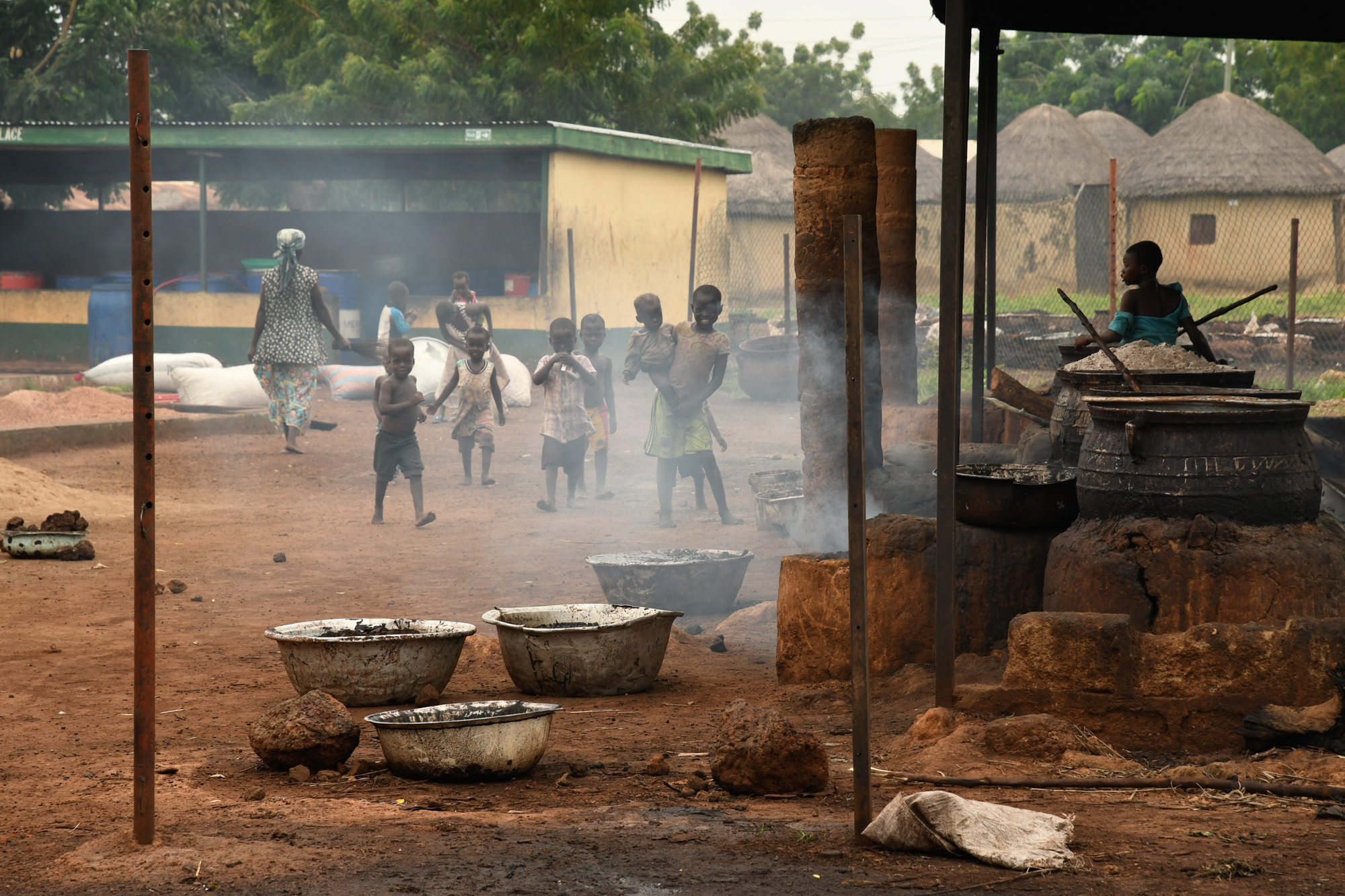
TAMALE, GHANA- Smoke and shimmering heat billowed across the shea butter co-op’s land. Children pranced through it like little, faded grey ghosts as their mothers toiled incessantly with the multiple steps involved in turning shea nuts into shea butter.
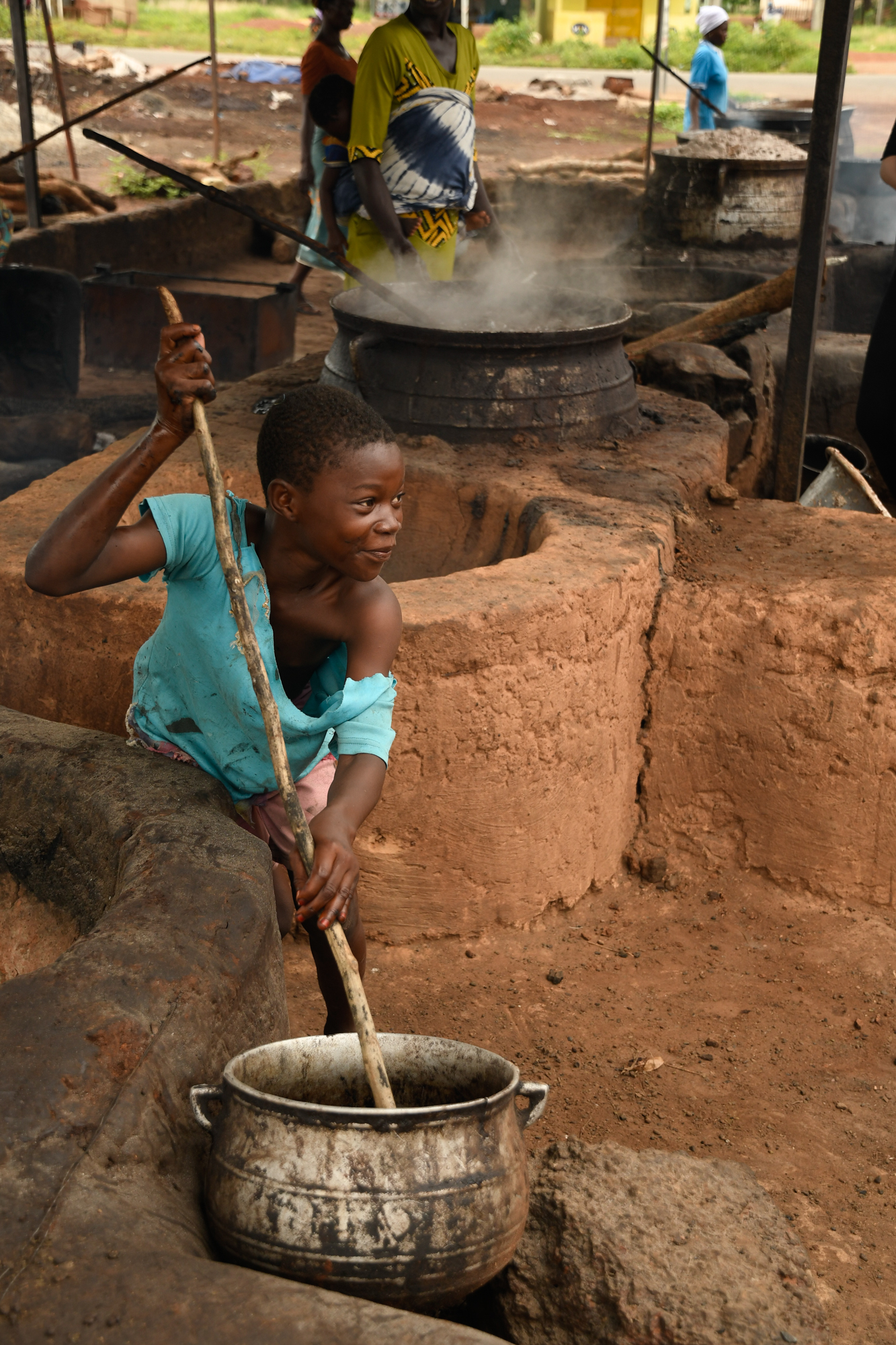
Fatima Iliasu surveyed the pots and roasters, the latter being the biggest source of smoke, while her son, Hidaya, swaddled on her back slept soundly despite the noise of the children playing, some of the women arguing near the donated kneading machine and the smoke from one of the two roasters.
The 40 year old mother wiped sweat off her glistening forehead caused by the crackling fire and meandered towards the gleaming, cylindrical roaster which was not producing smoke or heat. A woman was turning each drum.
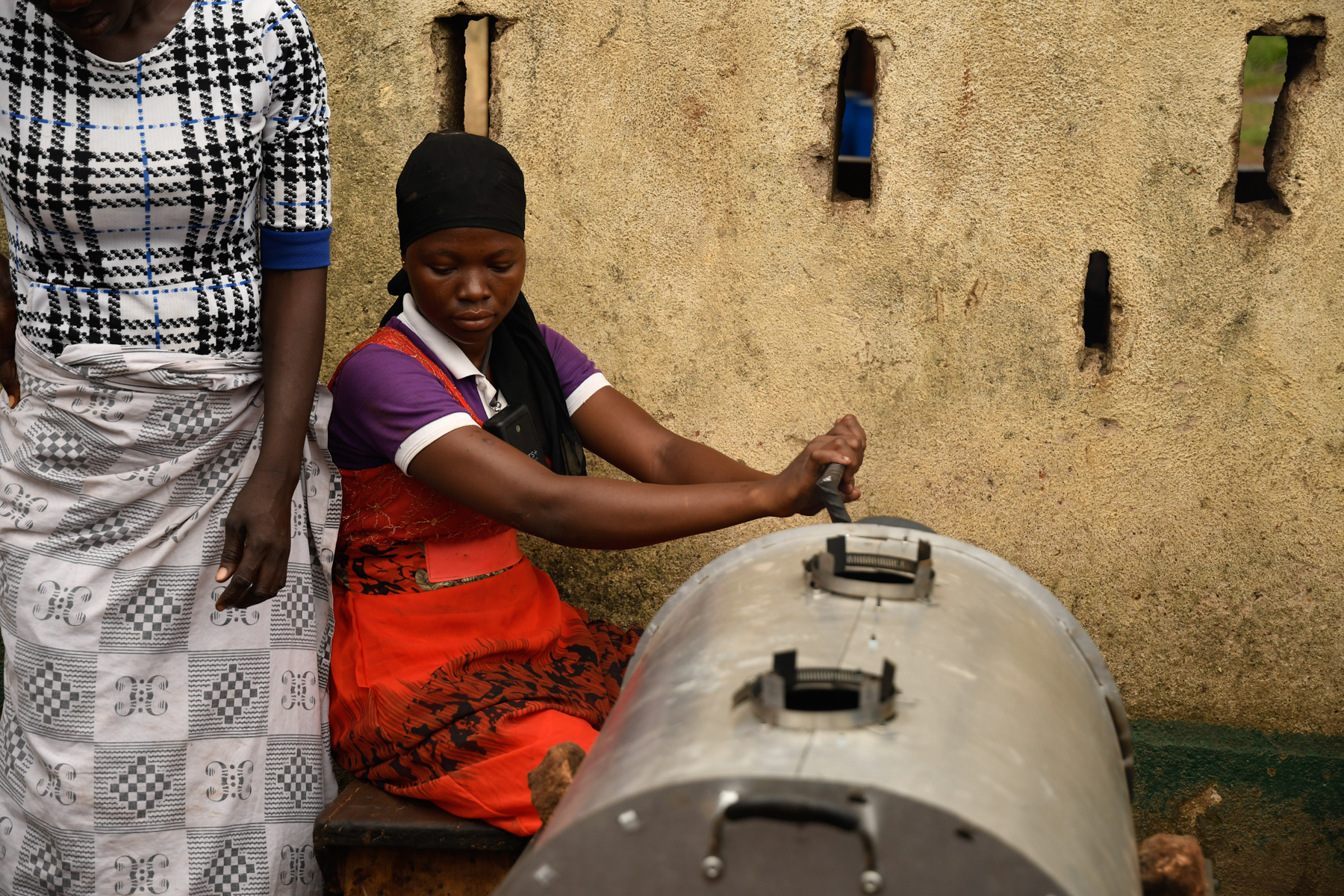
“This one is better,” Iliasu said with a smile prompted by the fact she and the other women could literally breathe easily while operating it. She chuckled, “It is still takes a lot of energy to turn.”
The smokeless roaster was conceptualized by Burn Design Lab, a Seattle based NGO. It was designed to expose the women to less smoke, carbon monoxide, heat and other harmful particles. It also increases fuel efficiency, and the final product should increase output.
The shea butter industry is booming in Ghana, and while many look to profit from the traditionally female practice, some are trying to make it healthier and cheaper for those who do the processing.
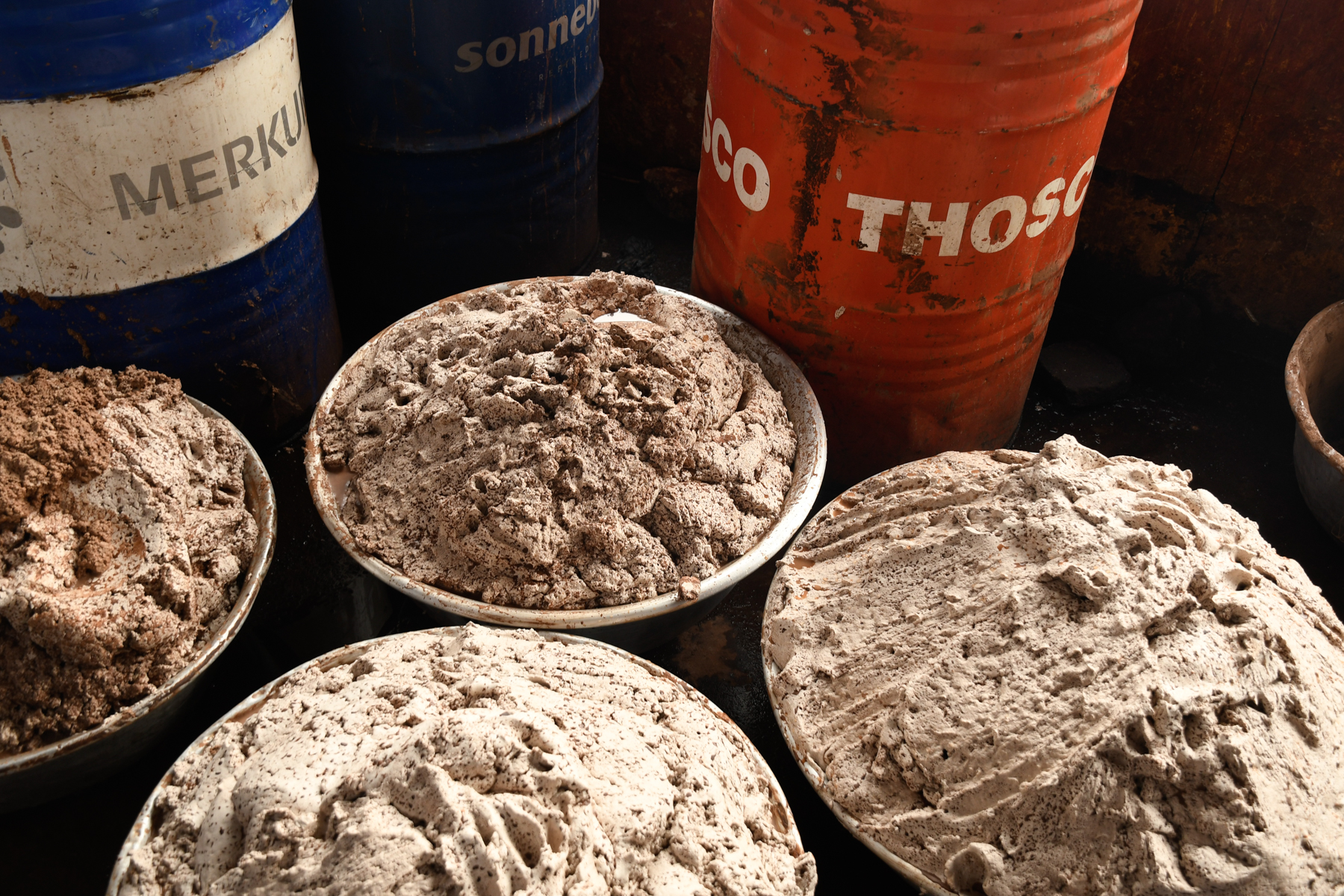
The two engineers behind the roaster, Elaine Vu and Eric Duah Boateng, have already identified a few flaws after visiting three co-ops with their prototype. The two are trying to find a place in Ghana for local production so the roaster can be distributed widely and cheaply among shea butter producers.
Vu just hopes they can release a product. She is concerned because Burn Design Lab’s Ghanaian partner, Burro Brand, is closing, and the cost of a finished product will certainly be more expensive than a traditional one.
“They like it, but the problem is how much are they willing to pay for it,” Vu explained. “If the middle man, Savanna Fruits, does not purchase it for them, then they have to pay for it, and they won’t buy our roaster out of pocket.”
The Ghanaian Tamale-based Savannah Fruits Company buys from the co-op and sells the butter to the cosmetics industry. While their website states that they prioritize social and environmental responsibility, they might not consider a new roaster their responsibility.
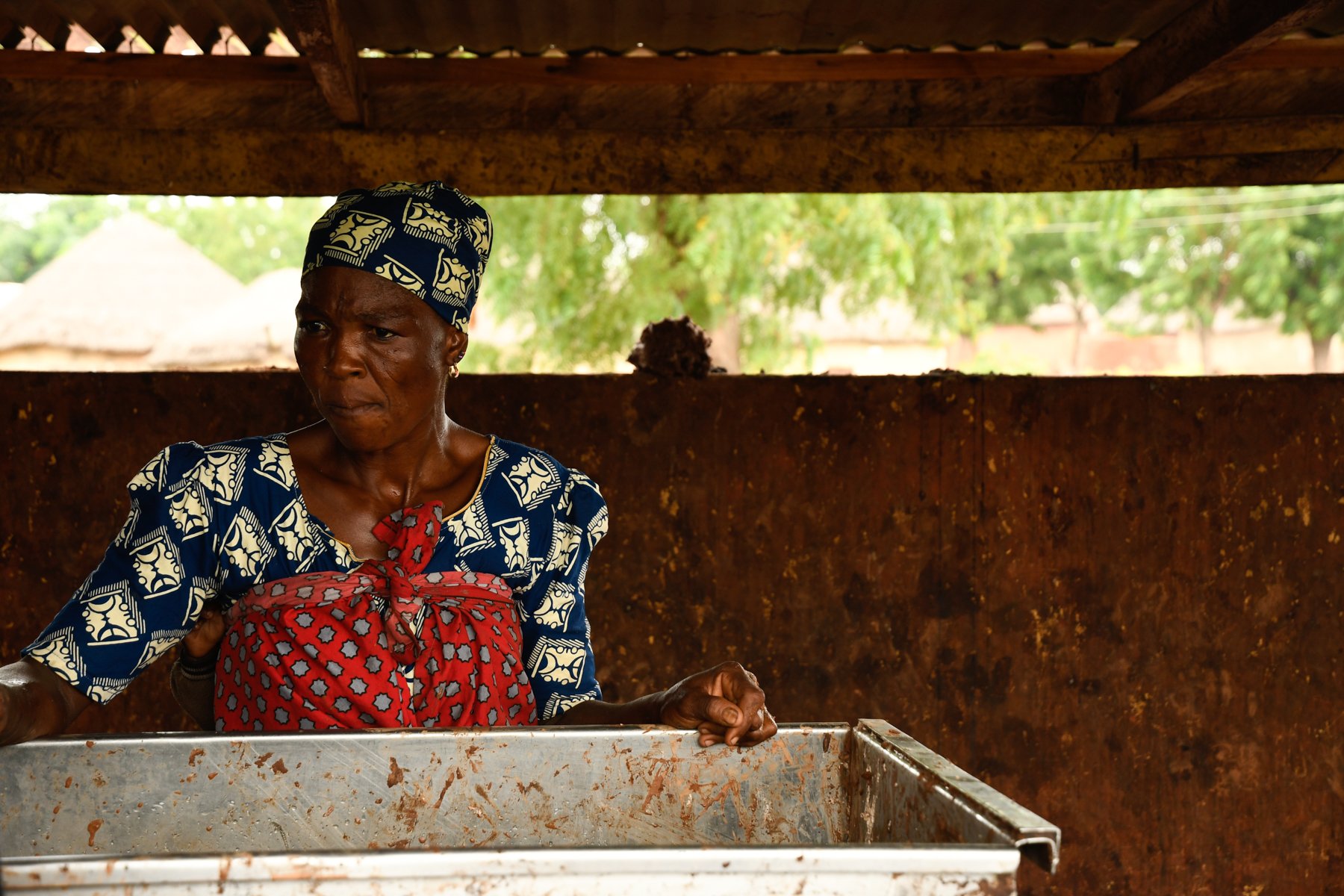
Prompting nods from two other co-op members, Iliasu and Ayishita Yakuba, Fuseine Yakubu said hesitantly that the prototype “uses less fuel, so it is more efficient. It hasn’t been here for long, all we know is it has helped us a bit for now.”
Boateng understands their hesitation. It is fuel efficient, but it takes three times longer than the traditional one, hence the women roast, and ultimately produce, less shea butter. The engineering team predicted in the lab that their roaster would increase output efficiency, so the women could save money on fuel and speed up the production process.“Our combustion chamber is too small,” Boateng offered as an explanation for slowed process.
“That is the traditional way,” he said, motioning towards the cylinder hemorrhaging smoke, “a lot of emissions, a lot of wood and fire, and exposure to the heat.”
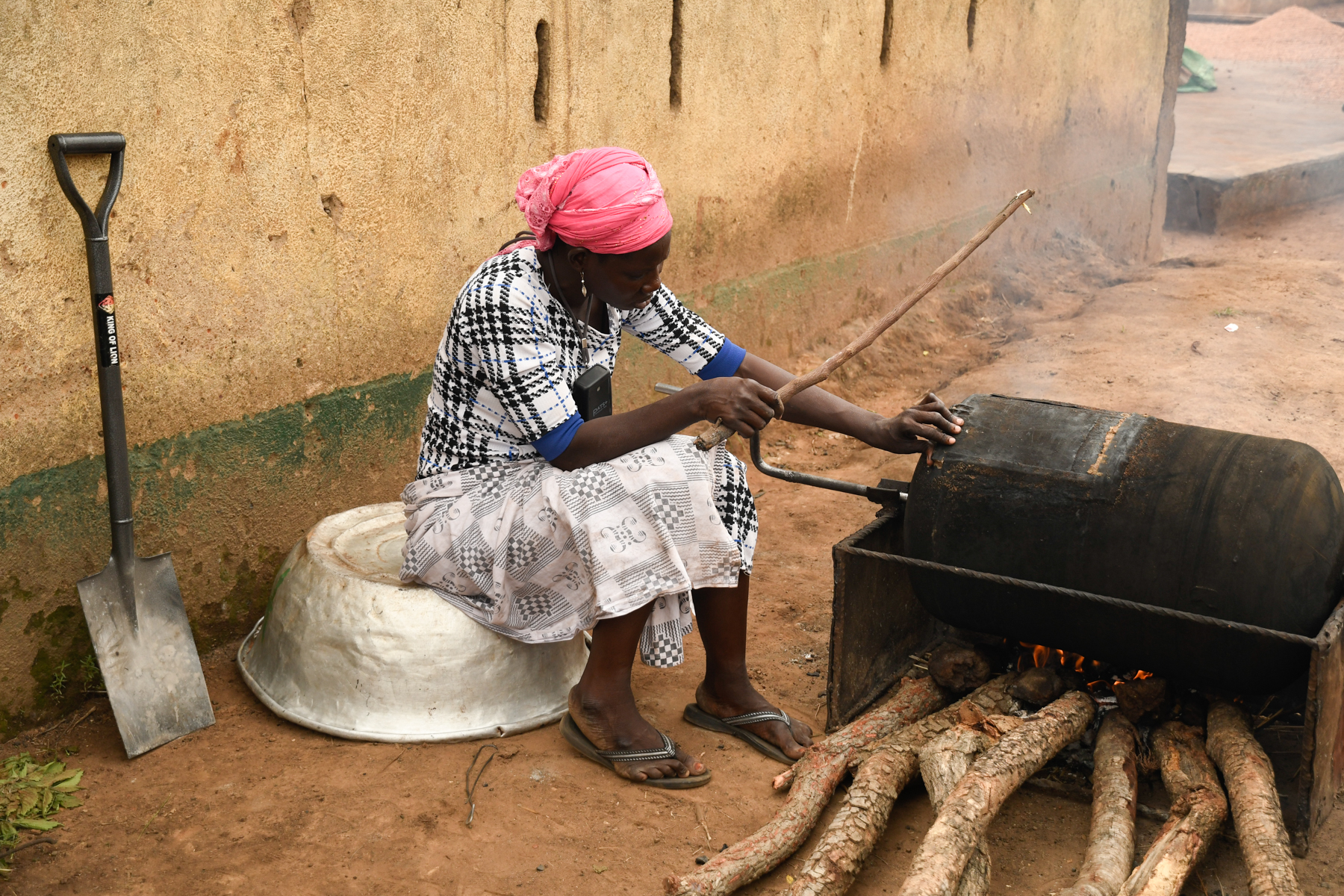
Iliasu hopes there is a final product available and that the women at the Gubdanda co-op can afford it, but now she has to worry about Hidaya who just woke up.
Collecting the shea nuts is dangerous work, which women wake up very early to accomplish. Scorpions and other dangerous organisms in the bush pose a threat to the collectors.
Traditionally, women go through the exhausting and tedious production process and face these dangers in the bush, but now men want to break into the industry.
They are doing this by trying to control the distribution of the shea butter after the women have finished making it.
Savannah Fruits is theoretically a more ethical partner than some of the distributors other shea butter producers work with, but according to the women at Gubdanda, the money they get for their butter is inconsistent in value.
With the incentive to always maximize the amount of butter they can sell to Savannah Fruits, they can not be held up by a prototype that would initially dig into their pockets for the sake of their lungs.
